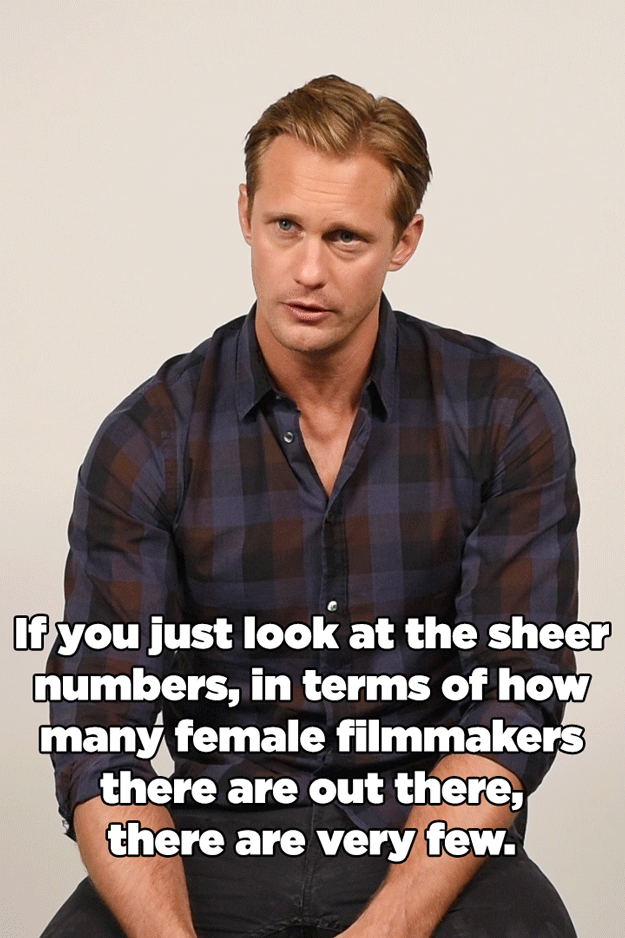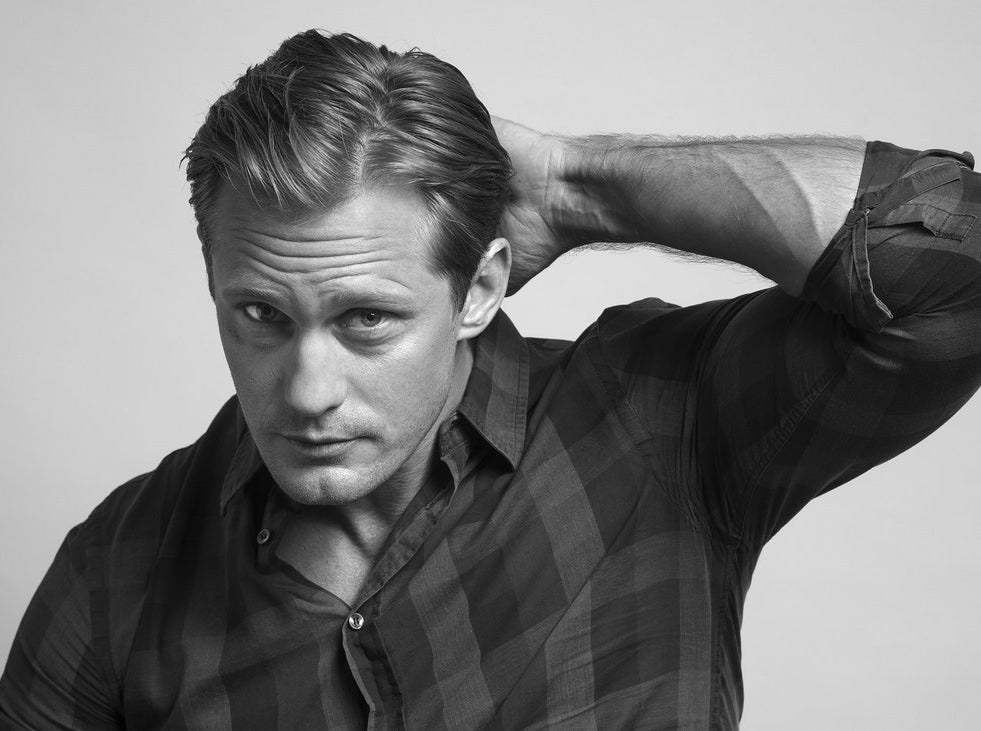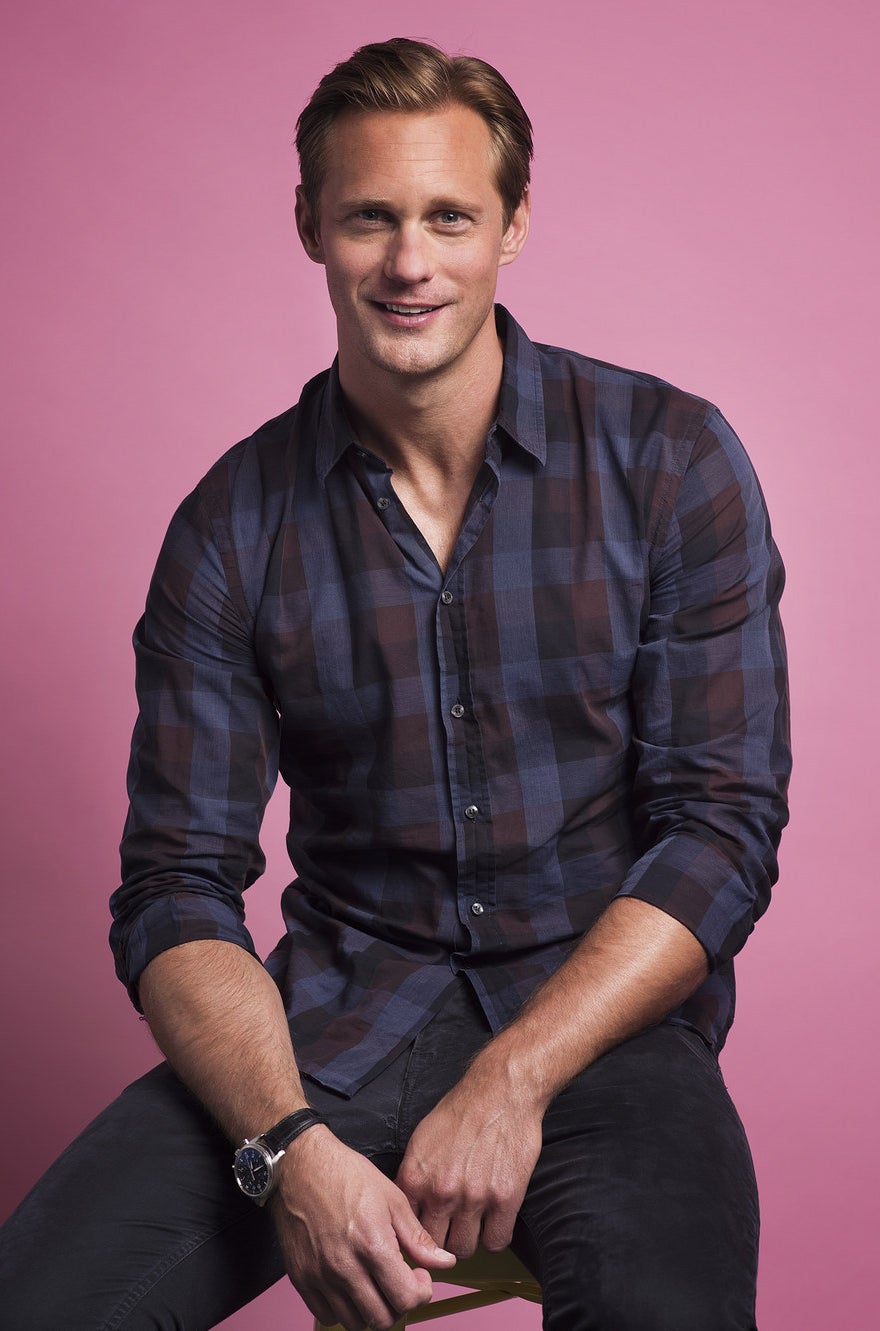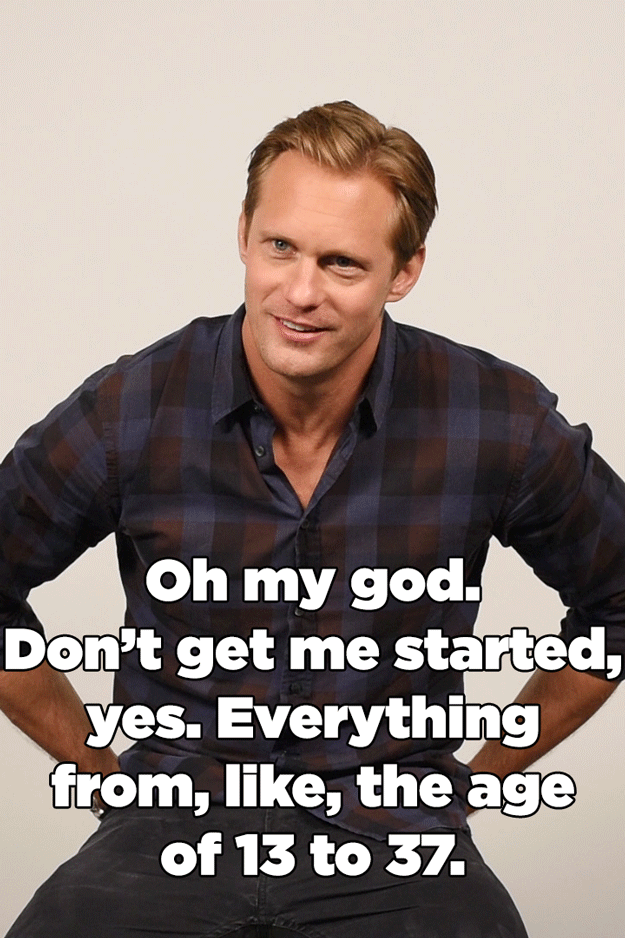We've all been in beautiful Alexander Skarsgård withdrawal since True Blood heartbreakingly came to an end, but things are finally starting to look up. He's commanding our attention once again in the Sundance hit The Diary of a Teenage Girl, the book-turned-movie that tells an honest and unapologetic coming-of-age story from a teenage girl's perspective — including her very complex affair with her mom's 35-year-old boyfriend, Monroe, played by Skarsgård.
We were lucky enough to have the Swedish star stop by BuzzFeed NY to chat about his experiences filming, including his very real thoughts about feminism and gender inequality in 2015. So if you thought you were already in love with him, prepare to reach peak Skarsgård obsession.
What attracted you to this role, and what challenges did you face when approaching this character?
Alexander Skarsgård: I would say that the challenge of playing the role is what attracted me to the project. I thought it was a really amazing script and a very unique story, and it made me realize how few coming-of-age stories are told from a girl’s perspective in such an honest way. When it’s a coming-of-age story from a girl’s perspective, it’s often very moralizing or very prude in a way. And it was just real refreshing to read something where the teenage girl was actually as confused and weirded out by her own thoughts as teenagers are.
In terms of the role Monroe, it was a real challenge. I didn’t really know how to play him, and that really excited me because those are always the most fun projects, when you're drawn to a project and you love the script and you love the story and the character, but you have a lot of questions and you don’t have the answers. I realized it would be a challenge to try and play him in a way that’s not too predatory. To play a 35-year-old man having sex with his girlfriend’s 15-year-old daughter is definitely a challenge. I felt like if it’s too predatory, it won’t be interesting for an hour and 40 minutes, because then you just label him as a creep. You’d just be like, "Get away from him, it’s disgusting!" We wanted to make it more uncomfortable for the audience, more complex in a way. And make them confused a bit watching this relationship and maybe find moments where they actually like the guy, or at least understood him, or hope they would stay together — and then be weirded out by their own feelings that they felt that way. So I had a lot of questions in my head, and that got me excited.
People often stereotype teen girls, but this story gave a more authentic, honest view of a girl's coming of age. How did you feel about being a part of a film that’s breaking through those stereotypes?
AS: I was very honored that Mari sent me the script. It was really refreshing to read a script that felt original. Very often when you read a script it feels like a version of a movie that you've seen before — you're like, OK, this writer was clearly inspired by this. And it also made me sad in a way, because I was like, this is so great, how come there are so many adolescent stories from a boy’s perspective but when it comes to girls it’s so stigmatized and so prude?
And this just felt so brave and unapologetic in a way. Meeting Mari, the filmmaker, got me so excited because she’s so intelligent and so passionate. I just called my agent and said, "I don’t care what else is out there, I want to make this movie."
What are your thoughts on sexism and gender inequality in Hollywood right now?
AS: I mean, it’s obviously a big problem. If you just look at the sheer numbers, in terms of how many female filmmakers there are out there, there are very few. But I’m optimistic. I think things are changing, and they have to change.


And the fact that we have filmmakers like Mari out there who’s so intelligent, so incredible, and speaks so eloquently about the issue that it’s difficult for people to continue to shy away from it, and kind of ignore it — she’s got a pretty bright flashlight in their eyes telling them, "You have to acknowledge this, this is a problem." And it’s not right, you know, we gotta do something about it.
What does feminism mean to you?
AS: I don't know how to define the word, but I think gender equality shouldn’t be an issue. I think it’s insane it’s still a problem in 2015.
But again, I am optimistic and I think we’re moving in the right direction. I grew up in Sweden and I think that’s a good example of a country that’s pretty progressive when it comes to gender equality and equal rights.
What was it like on set working with Kristen Wiig?
AS: Even in those serious moments, we had a lot of fun on set. I was in a movie a couple years ago called Melancholia and it‘s about literally the end of the world, and it was one of the most fun sets I’ve ever been on. You kinda have to alleviate the tension in the way by having fun on set; it helps a lot. And obviously having Kristen, who’s one of the funniest people in the world, helped on set. She’s so good in the film. I think people will be surprised. People know her as obviously an amazing comedian, but it’s a really difficult part to play and she does it beautifully to find that balance — someone who’s so irresponsible and not a present mother, but at the same time you feel for this character. She does it beautifully.
This film was based in the '70s, but if you could be reborn in any other era or time period, when would you want to be born?
AS: I don’t know, this was a dream to shoot a movie that takes place in 1976. Not only that, but it takes place in San Francisco, and we actually shot it in the streets of San Francisco. It really felt like we were back in 1976, because half the population there, they still think it’s 1976. So there’s a lot of interesting old people that live honestly as if it’s 1976. It helped when we were shooting to be surrounded by that energy and it really was a dream.


What advice do you have for young women who might not see their own potential?
AS: Well, I don’t know if I have any profound advice. Being a teenager is so fucking weird and confusing for boys and girls, and even more alienating when you watch movies where you don’t feel represented, if you can’t relate to any of these characters.
We’re not saying what she does in the movie is right, it’s just a very personal story of someone going through these crazy experiences and coming of age and hopefully learning something. It’s a weird time, and it’s weird for everyone.
What were you like as a teen? Could you relate to Minnie’s character in that you felt confused or awkward?
AS: Oh my god. Don’t get me started, yes. Everything from, like, the age of 13 to 37. I stopped being a teenager about three weeks ago.


Of these three films/TV shows you starred in, which character would you rather trade lives with if you had to: Eric from True Blood, Tarzan, or Meekus in Zoolander?
AS: Well, Meekus dies in a gasoline fire, so that’s, not great. That’s a tough one actually. I would probably say Tarzan. Eric Northman has a lot of fun — he’s maybe less tormented than Tarzan — so it’s a toss up between the two.
Watch some of the visit here:
